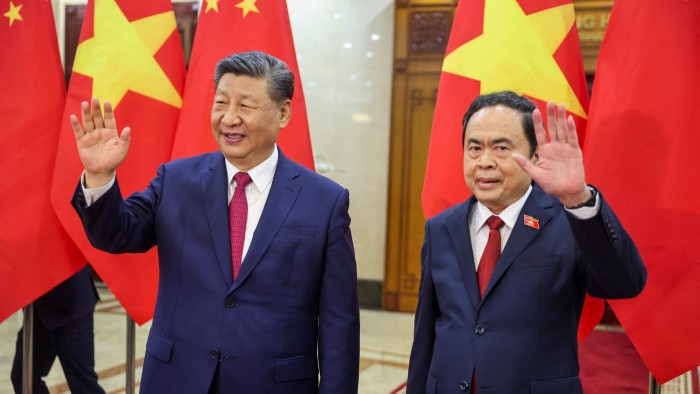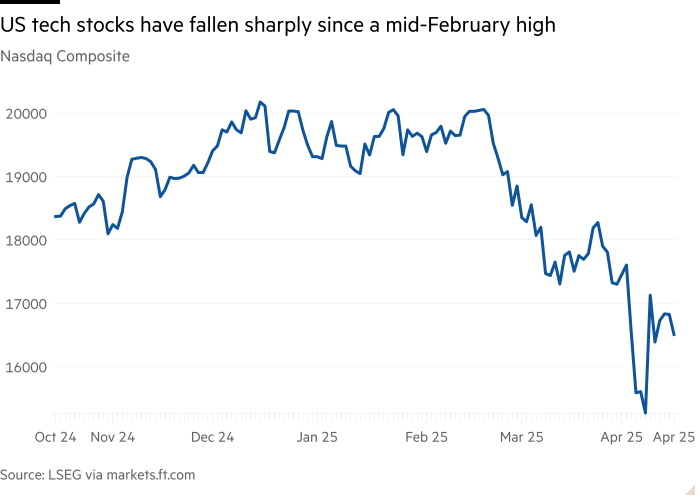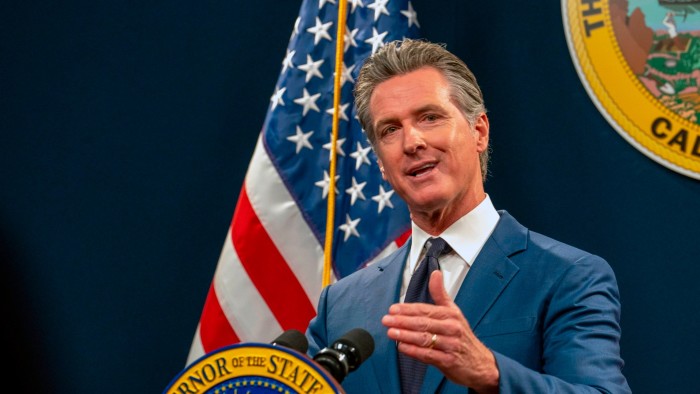Xi urges Vietnam to oppose Trump’s tariff ‘bullying’

Unlock the White House Watch newsletter for free
Your guide to what the 2024 US election means for Washington and the world
China’s President Xi Jinping has urged Vietnam to work with Beijing to oppose “unilateral bullying”, in a thinly veiled criticism of Donald Trump’s imposition of high tariffs on trading partners.
Xi made the remarks in a meeting with Vietnam’s Communist party chief To Lam in Hanoi, Chinese state news agency Xinhua reported late on Monday.
Xi is visiting south-east Asia this week, his first foreign tour of the year, aiming to reassure trade partners and strengthen ties with export-dependent countries rattled by Trump’s sweeping tariffs.
“China’s mega market is always open to Vietnam,” Xi said, adding that Beijing “will, as always, support Vietnam in taking a socialist path that suits its national conditions” and noting the countries’ “camaraderie plus brotherhood”.
Washington has targeted China and Vietnam — two of its largest trading partners — with some of its highest tariff rates, with Beijing facing a levy of up to 145 per cent and Vietnam 46 per cent, though the latter has received a 90-day reprieve.
Xi told Lam, who assumed Vietnam’s top position last year, that the countries should “strengthen strategic resolve, jointly oppose unilateralism and bullying practices”, according to Xinhua.
He added that they should work together to uphold the global free trade system and maintain the stability of industrial and supply chains, while also strengthening strategic dialogue on diplomacy, defence and public security.
China and Vietnam signed 45 co-operation agreements during Xi’s visit, including one on railway development, according to Vietnamese state media.
Trump reacted to the meeting between China and Vietnam by saying that the countries were “trying to figure out, ‘How do we screw the United States?’” He added: “I don’t blame China. I don’t blame Vietnam.”
The US president has attacked the EU, which has imposed and then suspended retaliatory tariffs against US steel and aluminium, by claiming that the bloc was “formed in order to screw the United States”.
Trump has made clear that he expects foreign leaders to capitulate to his tariff campaign and offer deals to the US to resolve the trade wars he has launched against dozens of countries.
While Vietnam has made overtures to Washington, Beijing has made clear that it will not cave to what it views as bullying tactics.
Critics of Trump’s approach have warned that pressure on south-east Asian nations, which the US had been trying to draw into its diplomatic orbit, risked producing the opposite outcome by pushing them closer to Beijing.
In addition to Vietnam, Xi will visit Malaysia and Cambodia this week.
Countries such as Cambodia, Bangladesh and Vietnam, which manufacture low-cost goods, have been slapped with some of the highest tariff rates due to their trade deficits with the US. The Trump administration has also accused countries in south-east Asia of serving as a conduit for Chinese companies seeking to avoid American tariffs.
South-east Asian governments had already warned of slowing growth from a trade war between the US and China, as their economies are heavily dependent on trade with the two superpowers.
Earlier in the week, Xi warned that the trade war would produce “no winners” and that countries should stand by the multilateral trading system.





